Filter by
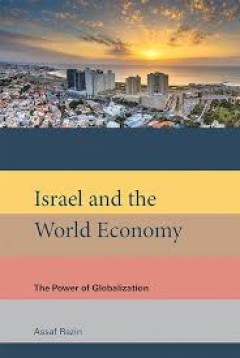
Israel and the world economy :the power of globalization
This book provides rigorous analysis of some of the major episodes during Israel's economic transition and spells out, empirically, how globalization played a crucial role in advancing Israel's economic progress. Economists and policy makers can gain insights as to how a globalized economy can take advantage of international trade, labor mobility, its international financial links, while at the…
- Edition
- -
- ISBN/ISSN
- 9780262344234
- Collation
- 1 online resource
- Series Title
- -
- Call Number
- -
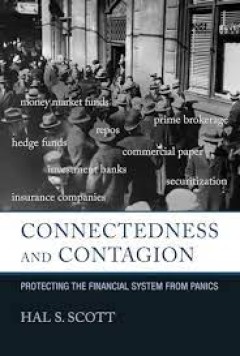
Connectedness and contagion protecting the financial system from panics
"The Dodd-Frank Act of 2010 was intended to reform financial policies in order to prevent another massive crisis such as the financial meltdown of 2008. Dodd-Frank is largely premised on the diagnosis that connectedness was the major problem in that crisis -- that is, that financial institutions were overexposed to one another, resulting in a possible chain reaction of failures. In this book, H…
- Edition
- -
- ISBN/ISSN
- 9780262332156
- Collation
- 1 online resource (xxi, 416 pages)
- Series Title
- -
- Call Number
- -

The transformation myth :leading your organization through uncertain times
"A practical guide for business leaders to learn from moments of crisis and advance their digital capabilities"--OCLC-licensed vendor bibliographic record.
- Edition
- -
- ISBN/ISSN
- 0262366584
- Collation
- 1 online resource.
- Series Title
- -
- Call Number
- -

Lockdown drills :connecting research and best practices for school administra…
"An examination of the role and impact of lockdown drills in America's schools, including consideration of arguments for and against these practices"--OCLC-licensed vendor bibliographic record.
- Edition
- -
- ISBN/ISSN
- 0262370700
- Collation
- 1 online resource.
- Series Title
- -
- Call Number
- -

The great recession :lessons for central bankers
Conference proceedings.Here, experts assess the role of central banks in responding to the recent financial crisis and in preventing future crises. The contributors focus on monetary policy, the new area of macroprudential policy, and issues of exchange rates, capital flows, and banking and financial markets.OCLC-licensed vendor bibliographic record.
- Edition
- -
- ISBN/ISSN
- 9781283938853
- Collation
- 1 online resource (xii, 380 pages) :illustrations
- Series Title
- -
- Call Number
- -
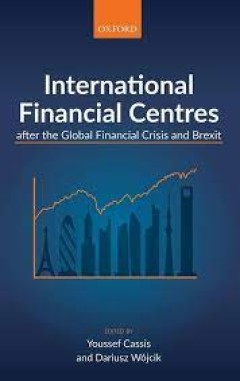
International Financial Centres after the Global Financial Crisis and Brexit
This book gathers leading economic historians, geographers, and social scientists to focus on the developments in key international financial centres following the 2008 Global Financial Crisis and to consider the likely effects of Brexit on these centres. Eleven centres in eight countries are taken into consideration: New York, London, Frankfurt, Paris, Zurich/Geneva, Hong Kong/Shanghai/Beijing…
- Edition
- -
- ISBN/ISSN
- 9780198817314
- Collation
- -
- Series Title
- -
- Call Number
- -
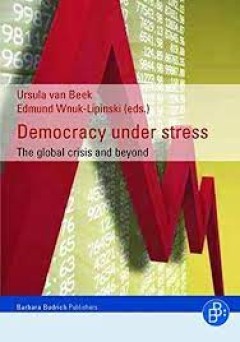
Democracy under stress The global crisis and beyond
This book focuses on the global financial crisis of 2008-2009 and its implications for democracy. Why and how did the crisis come about? Are there any instructive lessons to be drawn from comparisons with the Great Depression of the 1930s? What are the democratic response mechanisms to cope with serious crises? Do they work? Is China a new trend setter? Do values matter? Are global democratic r…
- Edition
- -
- ISBN/ISSN
- 9783866495807
- Collation
- -
- Series Title
- -
- Call Number
- -

The Politics of Bad Options Why the Eurozone's Problems Have Been So Hard to…
Why did the Eurozone crisis prove to be so difficult to resolve? Why was it resolved in a manner in which some countries bore a much larger share of the pain than other countries? Why did no country leave the Eurozone rather than implement unprecedented austerity? Who supported and who opposed the different policy options in the crisis domestically, and how did the distributive struggles among …
- Edition
- -
- ISBN/ISSN
- 9780198857013
- Collation
- -
- Series Title
- -
- Call Number
- -
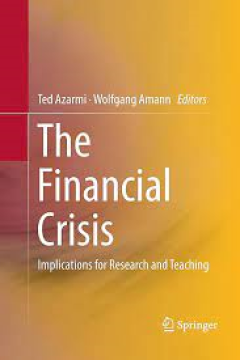
The Financial Crisis
This book brings together a good mix of academics and practitioners for a discussion that focuses on how to change financial practice and the academic field of finance in order to understand the current financial crisis and deal with future turbulent financial times. The volume is based on contributions by prominent academics and practitioners from Europe, Asia and the USA. The book contains se…
- Edition
- -
- ISBN/ISSN
- 978-3319205878
- Collation
- 190 pages
- Series Title
- The Financial Crisis
- Call Number
- -
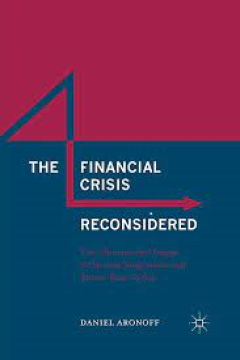
The Financial Crisis Reconsidered
Aronoff proposes a novel theory to account for the ultimate origins of secular stagnation and economic volatility. He shows how accumulation, which occurs when a person or country earns more than it ever plans to spend, generates both an excess of saving and a deficiency in demand. While savings provide the funds to promote booms, under-consumption ensures that these booms will turn bust and th…
- Edition
- -
- ISBN/ISSN
- 978-1349575473
- Collation
- 308 pages
- Series Title
- The Financial Crisis Reconsidered
- Call Number
- -
 Computer Science, Information & General Works
Computer Science, Information & General Works  Philosophy & Psychology
Philosophy & Psychology  Religion
Religion  Social Sciences
Social Sciences  Language
Language  Pure Science
Pure Science  Applied Sciences
Applied Sciences  Art & Recreation
Art & Recreation  Literature
Literature  History & Geography
History & Geography